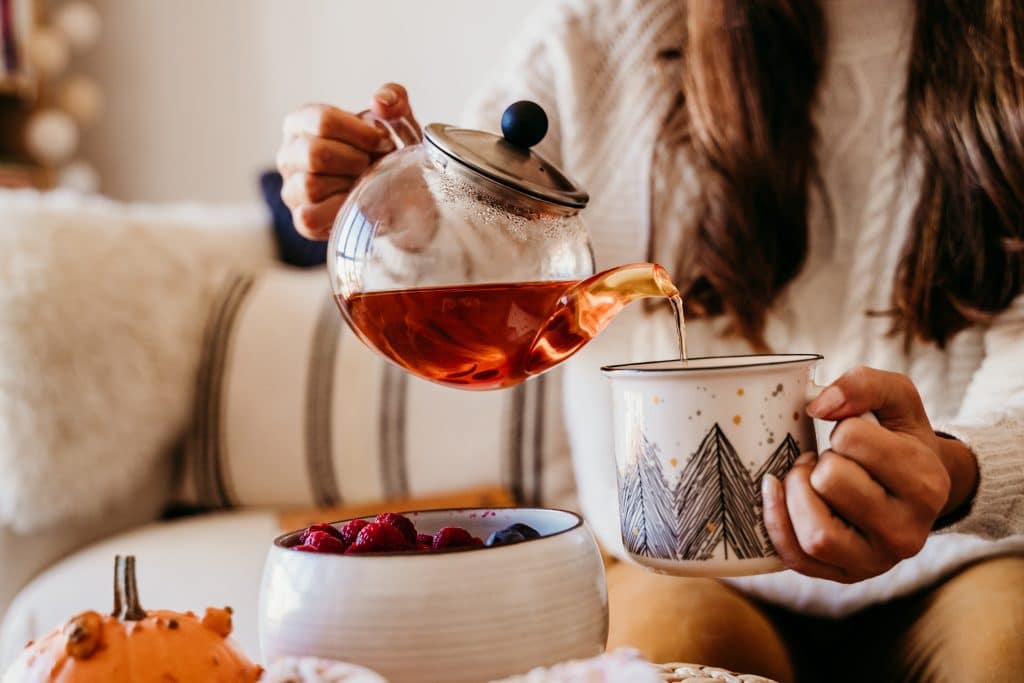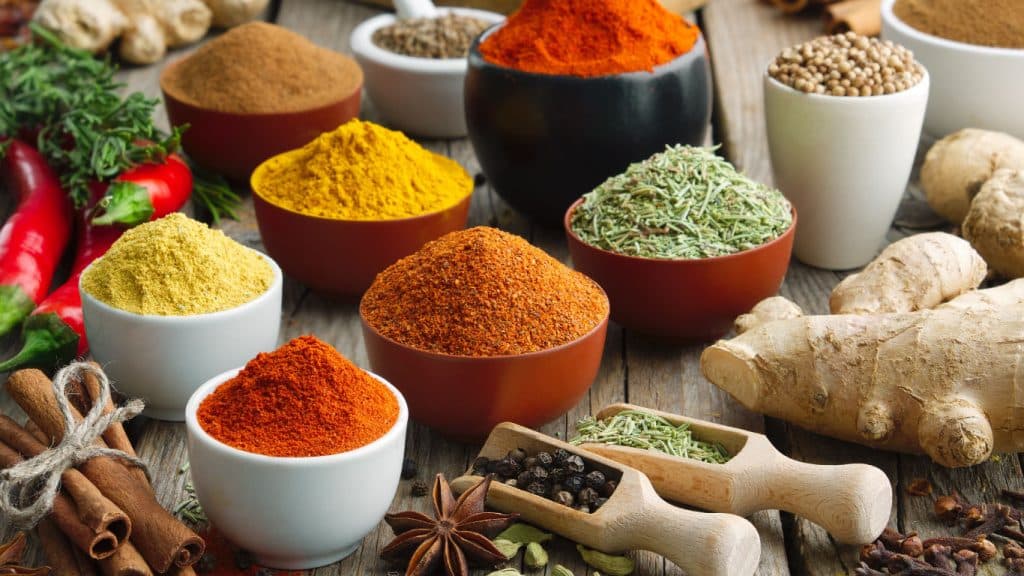Herbal teas have been used for thousands of years to promote health, boost energy, and heal the body naturally. From ancient China to modern-day kitchens, these teas are more than just a comforting drink. They’re packed with healing properties that can help you feel your best. In this post, we’ll dive into five of the most beneficial herbal teas, their history, fun facts, and ways to use them in your daily routine!
Chamomile Tea: The Relaxation Superstar
Chamomile tea is one of the most well-known herbal teas for calming both the mind and body. Its history dates back to ancient Egypt, where it was used to treat fever and other ailments. Chamomile flowers are small, daisy-like blooms, and their sweet, apple-like aroma makes for a soothing tea.
Benefits:
- Helps with sleep: Chamomile contains apigenin, an antioxidant that helps promote sleep and reduce insomnia.
- Eases digestion: A cup of chamomile tea can calm an upset stomach and relieve indigestion.
- Relieves stress: Its calming properties are great for reducing anxiety.
Fun Fact:
Chamomile has been called “the plant’s physician” because it is said to improve the health of other plants growing nearby.
Recipe Idea:
Make a **bedtime tea blend** by mixing chamomile with a bit of lavender and lemon balm. Add honey for a sweet twist!
Peppermint Tea: The Tummy Tamer
Peppermint tea is famous for its refreshing flavor and cooling sensation. It has been used in ancient Greece and Rome to aid digestion and improve health. This tea comes from the leaves of the peppermint plant, which is a hybrid between watermint and spearmint.
Benefits:
- Aids digestion: Peppermint tea helps relax the muscles of the digestive tract, making it great for reducing bloating and gas.
- Relieves headaches: The cooling menthol in peppermint can ease headaches and tension.
- Boosts energy: Its refreshing taste helps wake you up and can improve focus.
Fun Fact:
Peppermint oil is often used in natural insect repellents because bugs don’t like the smell!
Tip:
For a cooling treat, make **iced peppermint tea** by brewing it strong, then pouring over ice. Add lemon slices for extra zing!
Ginger Tea: The Immune Booster
Ginger tea has been a staple in traditional Chinese medicine for over 2,000 years. Known for its spicy kick, ginger tea is made from the root of the ginger plant and is often used to fight off colds and nausea.
Benefits:
- Soothes nausea: Ginger tea is perfect for relieving nausea, whether from motion sickness, pregnancy, or an upset stomach.
- Reduces inflammation: Ginger contains gingerol, a powerful compound that helps reduce inflammation in the body.
- Boosts immunity: Its natural warming effect can help fight off colds and keep you feeling your best.
Fun Fact:
In ancient India, ginger was so valuable that it was traded like gold!
Recipe Idea:
Make a spicy ginger lemon tea by adding fresh ginger slices to boiling water with a squeeze of lemon and a touch of honey. This tea is perfect when you’re feeling under the weather!
Rooibos Tea: The Red Wonder
Rooibos, also known as red bush tea, comes from South Africa and has been enjoyed for centuries. It’s naturally caffeine-free and has a smooth, earthy flavor with a hint of sweetness. Rooibos is packed with antioxidants, making it a great choice for overall health.
Benefits:
- Rich in antioxidants: Rooibos tea contains powerful antioxidants that help fight off free radicals and reduce signs of aging.
- Supports heart health: Drinking rooibos tea can improve circulation and lower blood pressure.
- Good for skin: The antioxidants in rooibos can help with skin conditions like eczema and acne.
Fun Fact:
Rooibos was traditionally used by South Africans as a natural dye for clothing and baskets because of its deep red color.
Tip:
Use rooibos tea as a base for smoothies! Brew it strong, let it cool, and blend it with fruits like berries and bananas for an antioxidant-rich treat.
Hibiscus Tea: The Blood Pressure Regulator
Hibiscus tea is made from the dried petals of the hibiscus flower, known for its bright pink color and tart, cranberry-like flavor. In ancient Egypt, pharaohs would drink hibiscus tea to cool off in the desert heat. Today, it’s loved for its heart-healthy benefits.
Benefits:
- Lowers blood pressure: Drinking hibiscus tea regularly can help lower high blood pressure.
- Rich in vitamin C: Hibiscus tea is high in vitamin C, which boosts your immune system.
- Supports liver health: Some studies show that hibiscus tea can help cleanse and protect the liver.
Fun Fact:
In Mexico, hibiscus tea is known as **agua de Jamaica** and is often sweetened and served over ice as a refreshing drink!
Recipe Idea:
Make a hibiscus iced tea by brewing it strong and sweetening it with agave syrup. Serve with fresh mint leaves and a slice of lime for a refreshing summer drink.
Fun Ways to Use Herbal Teas Beyond Drinking:
Cooking: Use brewed herbal tea as a base for cooking grains like rice or quinoa for an added layer of flavor.
Baths: Chamomile or lavender tea can be brewed and added to bath water for a relaxing soak.
Herbal tea popsicles: Brew your favorite herbal tea, sweeten it with honey, and freeze it in popsicle molds for a fun and healthy treat.
Conclusion: Sip Your Way to Better Health!
Herbal teas are a simple and delicious way to improve your health, naturally. Whether you’re looking to calm down with chamomile or fight off a cold with ginger, there’s a tea for every need. The best part? You can enjoy these teas in many fun and creative ways, from soothing bedtime blends to refreshing iced teas. So, next time you’re looking for a warm, cozy drink or a cool, refreshing treat, reach for one of these healing herbal teas!
FAQs:
- Can I drink herbal tea every day?
Yes, most herbal teas are safe to drink daily. However, it’s always a good idea to check with a healthcare professional if you have any specific health conditions.
- What’s the best time to drink herbal tea?
Chamomile and peppermint are great for relaxing in the evening, while ginger or peppermint can help boost energy in the morning.
- Is herbal tea good for weight loss?
Some herbal teas, like green tea and hibiscus, can help support weight loss when combined with a healthy diet and exercise.
- Can kids drink herbal tea?
Yes! Many herbal teas are safe for children, but it’s best to stick with gentle teas like chamomile and rooibos.
- Do herbal teas have caffeine?
Most herbal teas are naturally caffeine-free, making them a great choice for people looking to avoid caffeine.
Bonus Tea: Mother’s Milk Tea – The Nursing Support Hero
Mother’s Milk Tea is a special herbal blend traditionally used to support breastfeeding mothers. This tea combines several herbs known for their ability to increase milk production, including fenugreek, fennel, blessed thistle, and anise. While the exact origins of the blend are unclear, these herbs have been used for centuries in various cultures for their lactation-boosting benefits.
Benefits:
Supports lactation: The key herbs in this blend, especially fenugreek and fennel, are known as galactagogues (substances that promote milk production).
Soothes digestion: Fennel and anise help calm the digestive system, which can be beneficial for both mother and baby.
Relieves colic in babies: The calming properties of fennel and anise can also help ease colic symptoms in breastfeeding infants.
Fun Fact:
Fenugreek has been used since ancient Egypt not only to aid nursing mothers but also as a spice for cooking and even as an embalming agent!
Recipe Idea:
Brew a cup of Mother’s Milk tea by steeping the blend in hot water for 10-15 minutes. Sweeten with a little honey or add a splash of almond milk for a creamy texture. Enjoy this tea a couple of times a day to support healthy milk production.
Tip:
Add Mother’s Milk tea to your smoothie routine by using the tea as a liquid base for a post-nursing energy boost. Combine it with oats, bananas, and almond butter for a lactation-friendly smoothie!
Adding this powerful tea to your herbal routine can help support both mother and baby during the breastfeeding journey. Not only does it provide physical benefits, but sipping a warm, nourishing tea can be a comforting ritual for new moms during this special time.



